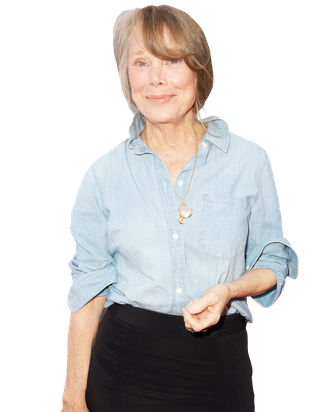
This week’s episode of Castle Rock, “The Queen,” is a gift to Stephen King fans, classic movie fans, and TV fans alike. Above all, it’s a showcase for the legendary Sissy Spacek, who gives one of the year’s best single-episode performances in a stunning, hour-long examination of when inner and outer horror collide. Her Castle Rock character, Ruth Deaver, is suffering from dementia, making her grip on reality even more tenuous as the world around her gets increasingly dangerous. The episode ends with a heartbreaking tragedy, made all the more resonant by the emotional gravity brought to it by Spacek. Vulture spoke with the legendary actress earlier this week about filming the episode, what makes Castle Rock unique, and her illustrious Hollywood career including films like Carrie, 3 Women, and Coal Miner’s Daughter.
Let’s talk about this incredible episode.
Oh my gosh, I have to interview you! I’ve only seen what I did ADR for. Of course, I was there when we were shooting. Now that I’ve been watching and having to wait, it’s kinda neat. It’s nipping at our heels. I’m excited to watch it at one minute after midnight tomorrow night.
Oh, you’ll be happy. It’s so beautifully constructed in the way it weaves in and out of memory.
We had a wonderful director, Greg Yaitanes. Wow. He’s quite something.
How far in advance did you know this episode was coming? Did they tell you it was building to episode seven?
This was the carrot that they dangled. It was the character of Ruth Deaver that intrigued me. They said that she’s living a horror within a horror. How does the real, true horror of what’s happening to her mind compare to the horror that’s happening in the town of Castle Rock? That was the thing that made me want to do it.
Did you do any research into dementia?
Oh yes. I read a book called Memory’s Last Breath, which was written by a woman who was suffering from dementia, but she was a brilliant woman. Reading that, she’s talking about it and writing about it and you’re experiencing it with her. You’re aware of what her challenges are. As little as trying to get yourself dressed. All the typical things that we’ve seen in so many beautiful films. There have been a lot of wonderful films made about dementia. The one made by Sarah Polley! [Away From Her.] Julie [Christie]. Oh my God! That was such a beautiful one. To add this to the Stephen King universe really intrigued me. There was Stephen King, there was J.J. Abrams, Sam Shaw, Dustin Thomason. Robin Sweet, one of our line producers. The cast was spectacular. At this time in my career, I’m looking for not just a wonderful character but a wonderful project and working with talented people who give it everything they got.
What was the most difficult part of capturing Ruth’s dementia? As an actress, aren’t you trained to know where your character is and what she wants in any moment? But you have to throw that away here. How difficult is that as a performer?
Well, I haven’t seen the whole thing, so I don’t know if I pulled it off! [Laughs.] The challenge was actually getting this little Southern tongue of mine to behave and do a Maine accent. Because of that, I had to work diligently on the scenes. As soon as I get them, I work on the dialect. And then, it’s unbelievable what you can find on the internet in terms of dementia — real families and what they’ve been through. Quite frankly, dementia patients and Alzheimer’s patients manifest the illness in different ways. There are similarities. There’s a lot of fear that permeates. Everything becomes heightened for her. It’s heartbreaking.
To me, the project was just so lovely. Scott Glenn, Melanie Lynskey, Jane Levy, Andre Holland, Frances Conroy — who, I might add, did the best Maine accent I’ve ever heard in my life [Laughs] — Terry O’Quinn! Noel Fisher! I thought he was stellar. Ann Cusack, she’s so incredible. That’s been exciting for me. It’s been fun waiting for Tuesday nights.
Let’s talk some more about one of your co-stars, Scott Glenn. Your dynamic with him is so important to how this episode plays out. What did he bring that other actors wouldn’t have brought?
I don’t know how to answer that exactly — what anyone else would have brought — but, to me, he was Pangborn. I’ve known Scott for 40 years, and my husband worked with him as a P.A. on their first film, six or seven years before Jack [Fisk] and I met. And we worked together on a film called The River. He had his wife, Carol, and his teenage daughters. I was there with Jack and our 11-month-old daughter Schuyler. So, we’ve had this long friendship. Five or ten years will go by and then we’ll catch up with each other. He’s been with his wife for 50 years, so he obviously understands that kind of devotion. And I do as well. We had such fun working together. All of these actors are at the top of their game.
How incredible is it to be a part of this ensemble? You had it something similar in Bloodline, which was also an ensemble piece. Why do you think TV is drawing such dense, talented ensembles?
It’s the new world of TV. You have a lot of freedom. Cable and digital channels have the artist’s … as we say in the horse world, “They let them have their head.” They loosen the reins and let ’em go. There’s a beauty in that. Actors and filmmakers, everybody wants a good story. These blockbusters, these huge films, that hire a lot of actors and that’s a great thing, but now there’s not just “big” films and “small” films — there’s something in between in television. I’m really grateful for it. It’s a heyday we’ll be talking about in 20 years.
Have you kept up with Stephen King’s work since Carrie? Why do you think people love it so much?
As a reader, as a storyteller, you trust his stories. He’s got one foot in reality and one foot in the stars. It’s psychological and it’s character-driven. One of the things that’s so good about Castle Rock is it captures that spooky kind of thing that’s elusive. It’s hard to describe. Our emotions, our fears — and then, somehow, they get humor in there. Also, he’s who we know. He’s that great writer that has been plopped down during our lifetime. He’s part of our culture. We know him. We feel safe with him, even though he scares us.
Especially in a film like Carrie. Do you still watch your old work?
Oh my gosh, I do! Sometimes it’s accidental. Sometimes there’s a new Blu-ray version. Badlands, 3 Women, In the Bedroom, Carrie, Coal Miner’s Daughter — those are a part of me. They’re like old friends. Mainly, the thing about all of these films I’ve been a part of is that I think about all of the elements that have to work. You go to do a project with the highest ideals and the biggest hopes and dreams that it will be not just what we think it is but that collaboration. It’s like reaching out for a doorknob and getting an electric shock. It’s that shock you’re looking for when everyone works together.
How do you know when the shock will be there?
You start to recognize elements in other films that had that. Whoever has the best ideas. Everybody speaks up. Everybody is a part of it. But you don’t know. That’s the scary part. It’s about collaborators. And, on this [episode], the collaborators were working so hard that I thought, “Well, if it doesn’t work, it won’t be for lack of trying.”


